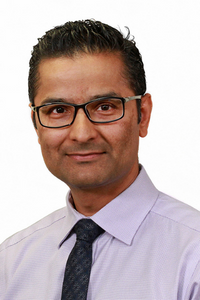Preventing Tragedy Through Regulation—New Practice Standard Preserves Public Trust
After opening an investigation and working through the disciplinary process of an oil tank collapse that led to the deaths of two workers and injured five in 2007, APEGA concluded the incident, in part, happened because design work was not completed by a professional engineer licensed in Alberta and professional responsibility was not taken for the professional work product through authentication.
Allan Ng, P.Eng., APEGA’s director of professional practice, says after that incident and several others, APEGA Council saw the need to develop a clear and defined standard to regulate the practice of outsourcing engineering and geoscience work to prevent similar incidents from occurring in the future and to safeguard Alberta’s public welfare.
The practice standard, Relying on the Work of Others and Outsourcing, defines the requirements APEGA licensed professionals and permit holders must follow when they outsource or rely on the work of others. After a year-long transition period, this practice standard becomes enforceable on May 1, 2022. “The takeaway is this is a necessary standard being set to prevent future tragedies,” states Ng.
APEGA’s Professional Practice Standards advisor, Dr. Shreeram Sigdel, P.Eng., explains this standard will bring consistency to licensed professionals and permit holders' practices and help minimize events such as pipeline leaks, structure collapses, and negative economic and environmental impacts. He says this is important because self-regulated professional engineers and geoscientists must hold paramount public health, safety, and welfare in their work. “The bottom line is someone licensed must take responsibility at the end of the day. This maintains trust in the engineering and geoscience professions and preserves public safety, which is always at the heart of what we do.”
Learn your responsibilities when relying on the work of others or outsourcing
Relying on the Work of Others and Outsourcing outlines new, enforceable requirements leading to increased public safety and potential cost savings for permit holders because, as Ng explains, work completed by a competent, reliable licensed professional is generally completed to a high standard. “By complying, you don’t risk your project on someone who is unqualified and unlicensed. There is financial benefit and cost avoidance. Selecting the right vendor at the beginning is always less expensive than selecting the wrong one.”
Dr. Sigdel explains the standard expands on how a self-regulated professional must take responsibility for the work done by others, either by providing direct supervision and control or by completing a thorough review of the work. “Whenever you hire an entity not licensed by APEGA, you have a responsibility to ensure that the professional work product is authenticated. That means you are doing the due diligence to ensure that proper measures are in place, starting from how you select the entity to outsource the work to, to what quality control and assurance measures are being followed, to who will authenticate and take professional responsibility.”
If you outsource to an APEGA licensed professional or permit holder, you need to have an outsourcing process in place. If you outsource to entities not licensed by APEGA, you need to develop an outsourcing plan for every product or project.
If an engineered product is completed, packaged, and covered under an internationally recognized standard, it’s considered a commercially engineered good. You can import and operate those products in Alberta. “If you are bringing in something that isn’t a commercially engineered good, then our question is, who is taking responsibility for it? If you don’t have an answer, it’s you,” clarifies Ng.
Protecting the public and maintaining trust
By following the requirements in the practice standard, licensed professionals and permit holders ensure work is of a high standard, follow the law, and protect the public. “The public shouldn’t have to think about safety when entering buildings, or crossing bridges, because we, as engineers are thinking about it. The layperson should rest assured we’re doing this work properly,” explains Ng.
He says developing practice standards helps APEGA and the professions maintain public trust, and engineers and geoscientists must take this trust to heart, owning personal responsibility for fellow human beings and civilization. “When everyone is working together for society, we all get to go home at the end of the day and enjoy what we like to do.”
Created with the same rigour as all APEGA’s practice standards, Relying on the Work of Others and Outsourcing was developed by APEGA’s Professional Practice department and a subject matter expert panel. It was reviewed by more than 100 permit holders, hundreds of licensed professionals, and the public before a recommendation was made by the Practice Standard Subcommittee. On May 1, 2021, the practice standard went into effect after receiving approval from APEGA’s Practice Review Board and APEGA Council. With the one-year transition period ending, Relying on the Work of Others and Outsourcing becomes enforceable on May 1, 2022.
Ng and Dr. Sigdel state APEGA’s Professional Practice Department is enthusiastic about educating permit holders and licensed professionals on standard updates and changes. Strengthening their knowledge and understanding enables permit holders and licensed professionals to update their existing processes and become compliant with efficiency. “If you have any questions or concerns or want to know more about how this affects your existing practice, please reach out,” says Ng.
Featured in this article

Allan Ng, P.Eng.

Dr. Shreeram Sigdel, P.Eng.
Further Resources
- Learn about your responsibilities when relying on the work of others and outsourcing
- If you have any questions about the practice standard, please contact APEGA's Professional Practice department
- To take APEGA’s online course outlining the practice standard, please log in to myAPEGA
